A Day Devoted to NICHD Intramural Fellows
The 19th Annual NICHD Fellows' Retreat is officially in the record books! Fourteen fellows delivered oral talks, and forty-two fellows presented posters showcasing research aligning with the NICHD mission to understand human development and improve health across the lifespan. These presentations covered NICHD research areas including developmental biology, neuroscience, molecular signaling, genetics, and public health. Oral talks and poster sessions placed a spotlight on fellows’ research on mechanisms of gene regulation in early development, molecular pathways underlying cancer and neurodegeneration, and genetic determinants of fetal growth and health outcomes.
Three fellows were selected to receive recognition for best talks. Two postbaccalaureate fellows, Allison Choe (Social and Behavioral Sciences Branch, DiPHR) and Ben Sempowski (Unit on Vascular Malformations), received top scores for their concurrent and oral talks, respectively. Postdoctoral fellow Lauren Hewitt, Ph.D., (Section on Cellular and Synaptic Plasticity) was also named a best concurrent talk.
While focused on celebrating the research achievement of the fellows, the retreat also brings together thought leaders in key areas of research and professional development. This year, the event was held on campus for the first time, which created space for more individual sessions that catered to the training levels and interests of NICHD fellows. The following sections provide summaries of sessions that were offered over the course of the day.
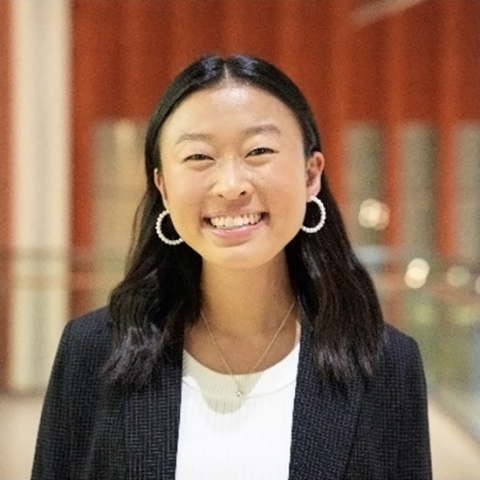
Allison Choe
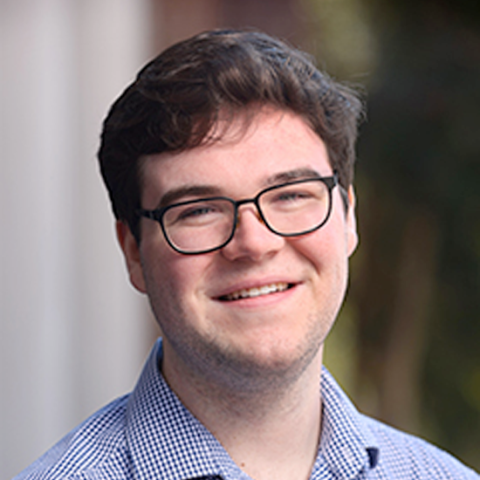
Ben Sempowski
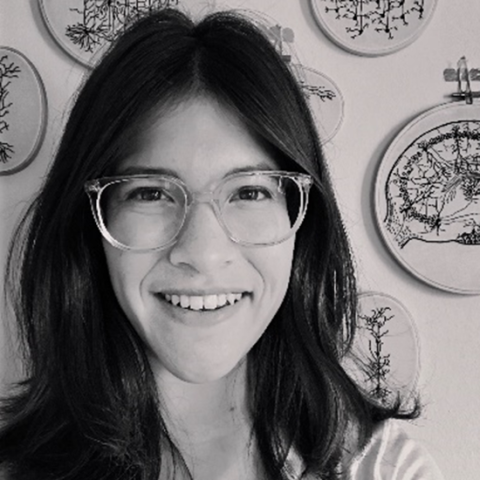
Lauren Hewitt, Ph.D.
Fostering the Next Generation of Researchers through Mentoring Programs
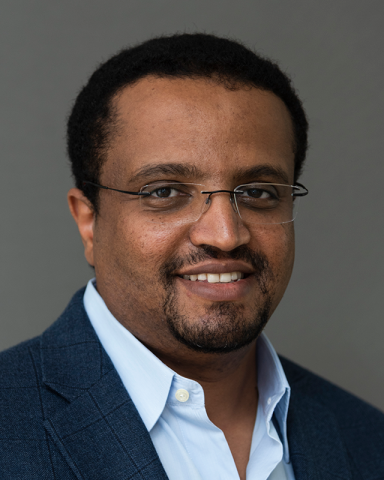
Bizu Gelaye, Ph.D., M.P.H.
Bizu Gelaye, Ph.D., M.P.H., the new senior investigator and chief of the Epidemiology Branch in the Division of Population Health Research, delivered the morning keynote address. Dr. Gelaye discussed his experiences with programs designed to increase participation of underrepresented groups in public health research, emphasizing the benefit of pipeline initiatives that create an opportunity for sustained mentorship for these individuals in science. He shared strategies to bridge racial disparities in health research, highlighting that early and continuous support plays a pivotal role in the long-term success of mentees.
Drawing from his own successes and failures to secure funding, Dr. Gelaye advised perseverance, noting that successful pathway programs often require multiple funding attempts. He discussed his role with Harvard University mentoring programs like the Multidisciplinary International Research Training (MIRT) and the Mississippi Delta Partnership in Public Health, both providing global public health research opportunities and leadership development. He also described his participation with the Global Initiative for Neuropsychiatric Genetics Education in Research, which builds neuropsychiatric genetics research capacity across Africa, and described his work to facilitate early-career collaboration and manuscript development for young investigators. Ultimately, Dr. Gelaye underscored that diversity is essential to advancing research and that building inclusive, supportive programs can drive impactful change for creating a diverse biomedical workforce.
A Session for Postbacs: M.D., Ph.D. or Both?
This year’s NICHD Fellows Retreat also introduced a new approach to its regular agenda by offering concurrent sessions tailored to different training levels to help attendees engage with topics most relevant to their career stage. One such session geared toward postbac fellows still deciding their educational goals was titled, “M.D., Ph.D., or Both: Which is Right for me?” Guest speaker Britney Hardy, Ph.D., Director of HiSTEP and OITE Educational Adviser, guided fellows through the decision-making process for medical or graduate school. She emphasized that understanding the differences between M.D., Ph.D., and M.D./Ph.D. paths—particularly in terms of patient interaction, program length, and career outcomes—is essential to making the right choice. For instance, M.D.s focus on patient care, Ph.D.s on research, while MD/Ph.D. graduates blend clinical work with research, often advancing knowledge that directly impacts patient outcomes.
Career intent plays a critical role in this decision. Dr. Hardy advised students to gain relevant experience aligned with their goals, such as shadowing for those interested in patient care or exploring research opportunities for those inclined towards academia. The M.D./Ph.D. path offers a unique hybrid for those aiming to see their research applied directly to clinical populations. To help with decision-making, Dr. Hardy encouraged fellows to explore NIH’s OITE resources, including workshops, mentorship opportunities, and career counseling services, which provide extensive support throughout the application process.
Spotlight on Two Intramural Scientific Resources
This concurrent session aimed to increase awareness of two intramural scientific services: the NIH Collaborative Research Exchange (CREx) and the NICHD Bioinformatics and Scientific Programming Core (BSPC). CREx program manager Deepika Velampati presented information about how this online platform connects NIH’s 200 core facilities, 75 trans-NIH facilities, and over 18,000 external providers to allow NIH intramural researchers to search for research tools, initiate conversations, compare proposals, and establish cross-institutional collaborations.
Ryan Dale, M.S., Ph.D., chief of the BSPC, presented information about how this core assists NICHD researchers at every stage of research from initial inquiries to complex data analysis at no cost to intramural investigators. Since 2018, BSPC has supported 284 projects across 56 labs, coauthoring 49 papers. The team provides reproducible workflows, interactive result access, and ongoing meetings to ensure researchers understand and can explore their data independently. In addition to the core’s scientific services, a Bioinformatics Training Program has recently been created in collaboration with the Office of Education to aid researchers in developing computations skills that will enhance the power of their research methods. This new program is managed by E. Sally Chang, M.A., Ph.D., who discussed how it seeks to equip NICHD researchers with the ability to independently conduct bioinformatic analyses and foster a sustainable community of expertise.
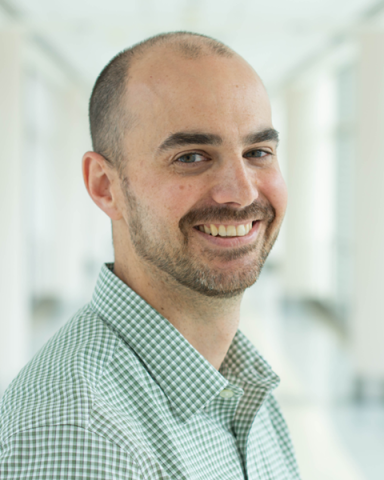
Ryan Dale, M.S., Ph.D.
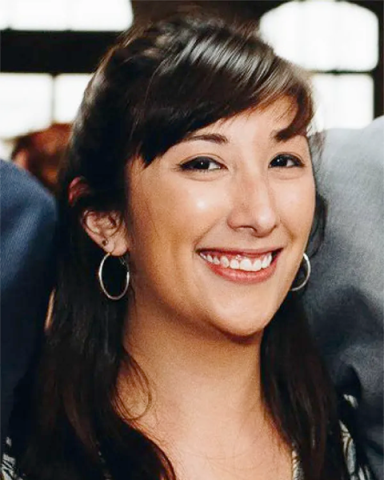
E. Sally Chang, M.A., Ph.D.
Pursuing a Career in Science Communication
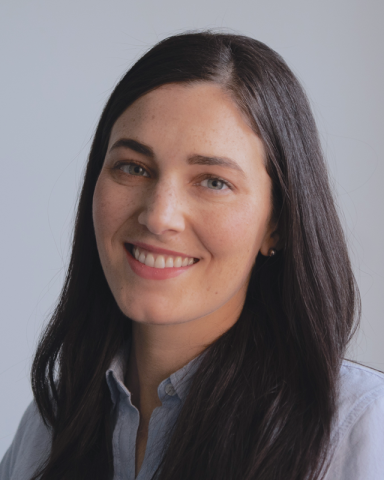
Samantha Jones, Ph.D.
Science journalist and podcast producer Samantha Jones, Ph.D., closed the annual retreat with a look at how her career journey into journalism began while still a doctoral student at the University of California, San Francisco. Knowing that she wanted to use writing outlets to distill complex information into a form suitable for a broader audience, she explored a range of writing careers before focusing on journalism. Subsequently, she became an assistant editor at Chemical & Engineering News and executive producer of the Tiny Matters podcast. Her work has included freelancing for major publications like The New York Times and National Geographic.
Dr. Jones described how her work is driven by a passion for a range of scientific fields and how she recognized early that she had a knack for simplifying complex topics, trying to create those “lightbulb moments” for her readers with anecdotes and metaphors. She emphasized the importance of knowing your audience and writing for them by avoiding jargon and using active voice. She also described the “inverted pyramid” writing strategy used in mass media writing, which places important information at the start of an article—a departure from the typical science writing of academic journals. To conclude, Dr. Jones recommended resources and provided advice for those who wanted to explore science journalism careers.
Acknowledgements: The NICHD Office of Education wishes to thank the Retreat Planning Team and the fellows and NIH staff members who took the time to make the day a success. Thanks are extended to the contributors to this retreat summary: Chelsey Fontenot, Ph.D., Abby Frankenberg, and Nireekshit Addanki Tirumala, Ph.D. A full listing of retreat speakers can be found in the October 2024 edition of The NICHD Connection.
Share your ideas for the 20th Annual Fellows’ Retreat! Click here to send us ideas for speakers, session topics, and formats.
Programs to Podcasts

In Case You Missed It: Two of the NICHD Office of Education’s recent speakers have podcasts!
If you would like to learn more from Lauren Celano, Ph.D., CEO of Propel Careers, check out her podcast, Propelling Careers. Lauren co-hosts the weekly discussion with Jim Gould, Ph.D., the Director for Postdoctoral Affairs at Harvard Medical School.
Looking for discussions on science and implications on today’s society? Samantha Jones, Ph.D., is the executive producer and co-host on Tiny Matters.
